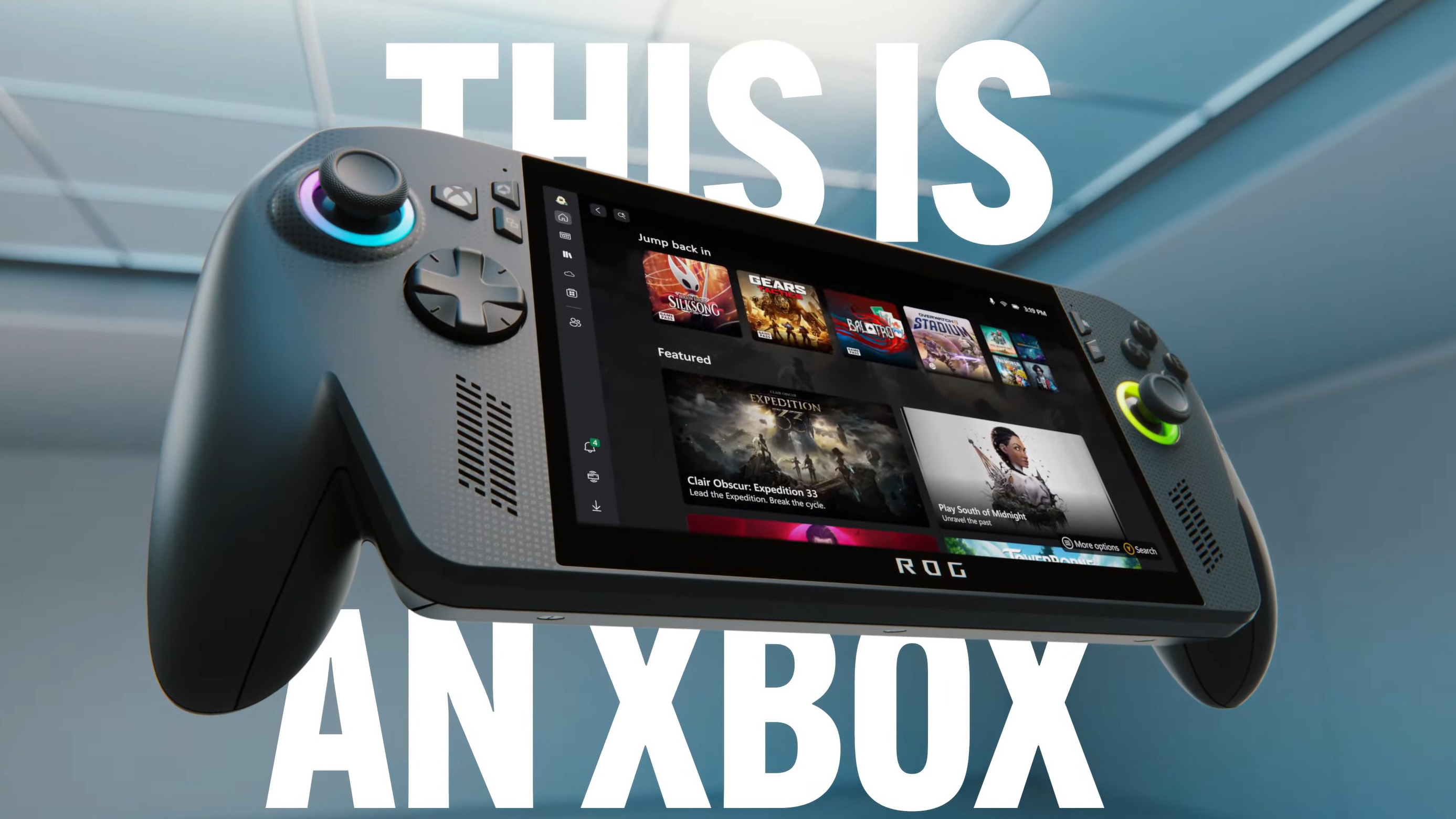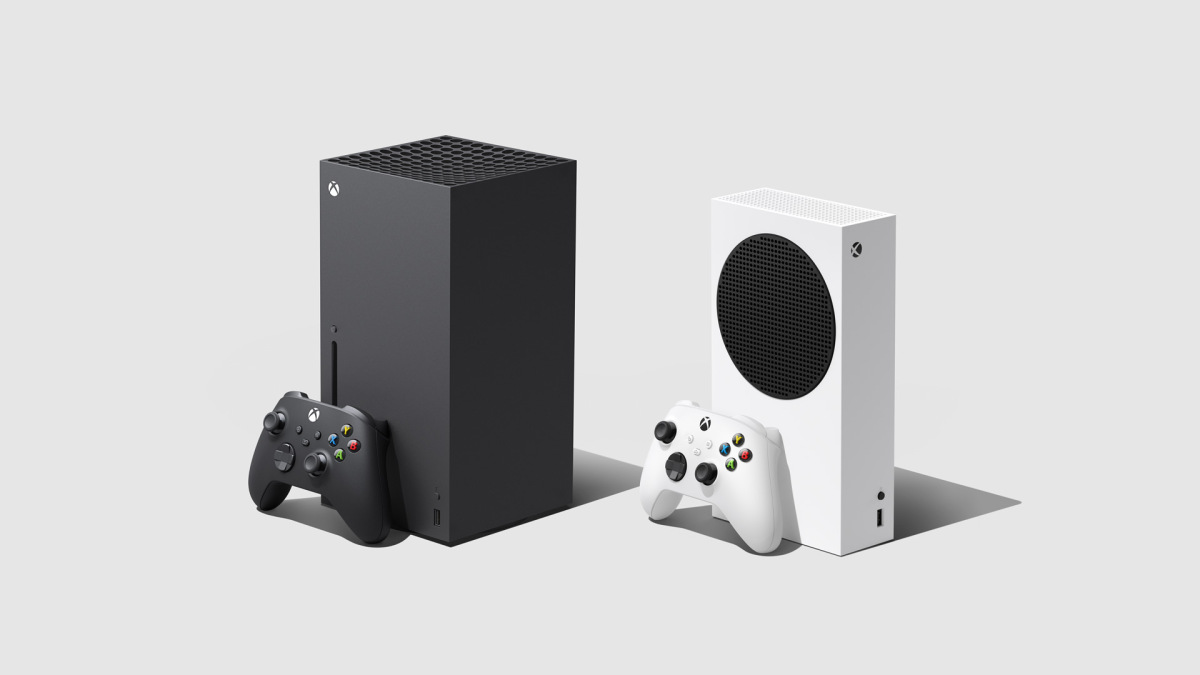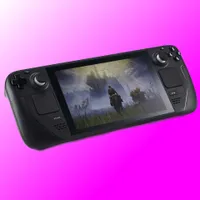Microsoft's exciting multi-year silicon partnership with AMD doesn't actually make it clearer if there's an official Xbox handheld or next-gen console coming
Will next-gen Xbox hardware be made by Microsoft, by someone else, maybe both?

So, Microsoft has announced it's teaming up with—or maybe that should be sticking with—AMD for its next generation of Xbox hardware. But what does that actually mean for conventional Xbox consoles and the new trend of handhelds?
Perhaps the key line from Xbox President Sarah Bond in the YouTube video announcement goes thus: "We've established a strategic multi-year partnership with AMD to co-engineer silicon across a portfolio of devices, including our next-generation Xbox consoles in your living room and in your hands."
There's always a risk of overanalysing such statements. But this wasn't an off-the-cuff quip. Instead, it was a carefully produced and curated video. So, we'll take Bond at her word.
With that in mind, the statement includes two distinct categories of Xbox. There's the broader "portfolio of devices," and then there's a subcategory "included" in that of "our next-generation Xbox consoles in your living room and in your hands."
At face value, that means there will be a range of Xbox devices, but only some of them will be made by Microsoft. Indeed, that is now already the case with the recent announcement of the Asus ROG Xbox Ally and Ally X handhelds, which are Xbox devices but not made by Microsoft.
Bond's statement seems to say that Microsoft itself does intend to make both next-gen consoles and handhelds, the former being the "living room" device, the latter in "your hands". But at the same time, there will be other Xbox devices, just like the Asus ROG Xbox Ally and Ally X handhelds, that aren't made by Microsoft.
That may well be the plan. But it's both a little surprising and somewhat tricky to understand. As I mentioned earlier today, there's a narrative doing the rounds that Microsoft itself will move away from producing Xbox hardware in favour of partnering with third parties on devices, just as it has done with the new Asus ROG Xbox Ally handhelds.
Keep up to date with the most important stories and the best deals, as picked by the PC Gamer team.
In that scenario, Xbox consoles would be more similar to PCs, in hardware terms, presumably making them simpler for third-party companies to produce. But this announcement very much implies Microsoft also intends to make its own Xbox hardware, too. And that's a little odd.
For instance, does Microsoft really want to invest in engineering and marketing its own handheld Xbox, only for it to compete with a whole panoply of alternative Xbox handhelds, some of which might actually turn out to be better?
And why would Microsoft want to invest in a living room console if it also wants to make it simpler for third parties to make Xbox consoles based on generic PC hardware? Again, why would Microsoft want its own Xbox console to have competition?

The simplest answer may be that "our next-generation Xbox consoles in your living room and in your hands" really means those third-party devices, not consoles and handhelds made by Microsoft. What's hard to imagine, even allowing for clumsy language, is that a "portfolio" of devices just means a Microsoft-made living console plus a handheld.
Surely it means more than that, and surely the Asus ROG Xbox Ally and Ally X handhelds signal that broader ecosystem of Xbox consoles, too. All the while, there's absolutely no indication of what "co-engineering silicon" will mean in practice.
Microsoft already does that with its existing Xbox Series S and X consoles, of course. So, is that anything new? In the end, we'll have to wait and see what Microsoft says and does in future. Because this announcement ultimately raises far more questions than it answers.
Best handheld gaming PC: What's the best travel buddy?
Steam Deck OLED review: Our verdict on Valve's handheld.
Best Steam Deck accessories: Get decked out.

Jeremy has been writing about technology and PCs since the 90nm Netburst era (Google it!) and enjoys nothing more than a serious dissertation on the finer points of monitor input lag and overshoot followed by a forensic examination of advanced lithography. Or maybe he just likes machines that go “ping!” He also has a thing for tennis and cars.
You must confirm your public display name before commenting
Please logout and then login again, you will then be prompted to enter your display name.


